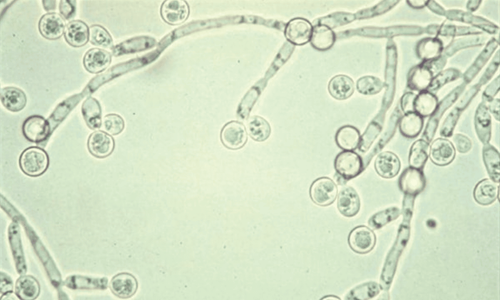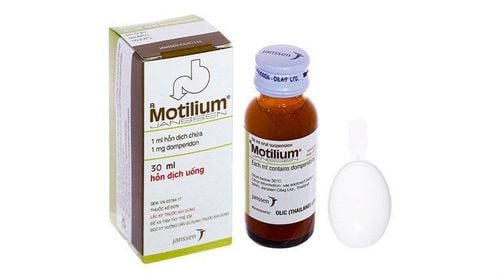This article is consulted by Dr. Nguyen Hong Phuc, Specialist Level I in critical care medicine, intensive care unit - Vinmec Phu Quoc International General Hospital.
Anxiety, insomnia, fatigue, poor concentration, and decreased productivity are signs of asthenia that can make life more difficult. Therefore, when experiencing asthenia, you need a balanced diet, a scientific lifestyle, and adherence to your doctor's treatment plan.
1. What is asthenia?
Physical exhaustion is a symptom of fatigue that can last for at least 6 months. Asthenia occurs at all ages in both men and women, with the highest risk being between the ages of 20 and 40. According to research, women are more affected than men.
If not addressed promptly, asthenia can worsen and develop additional symptoms such as causeless fear, social withdrawal, unwillingness to interact with others, and accompanied by nightmares, making it difficult or impossible for the patient to sleep. This leads to consequences such as poor thinking, poor concentration, forgetfulness, slowed reflexes, and sometimes inaccurate behavior.
With the above signs, people with asthenia will not like to work or will be unenthusiastic, and easily tired, and their work productivity and quality will be poor. Therefore, they often experience failure, frustration, and giving up.
Trắc nghiệm: Bận rộn có ảnh hưởng đến sức khỏe của bạn không?
Cuộc sống hiện đại khiến chúng ta vì quá bận rộn mà quên chăm sóc sức khỏe cho chính mình. Ai cũng biết rằng lịch trình làm việc cả ngày có thể khiến bạn kiệt sức, nhưng cụ thể bận rộn ảnh hưởng thế nào tới sức khỏe? Hãy cùng làm thử bài trắc nghiệm dưới đây.
2. Causes of physical exhaustion
Some causes of physical exhaustion include iron deficiency anemia, hypoglycemia, systemic infection, mononucleosis, immunosuppression, changes in the hormone levels of the hypothalamus-pituitary-adrenal gland, low blood pressure...
Asthenia can also be immeasurable, such as due to viral infections, rheumatoid arthritis, or lupus.
Some people who have heavy workloads, diet, lack nutrients, or patients after surgery, or childbirth... are prone to this disease.
However, in reality, most cases have no clear cause or are caused by any specific disease.

3. Symptoms of Physical Exhaustion
You can predict whether your body is exhausted based on the following symptoms:
- Fatigue and exhaustion: feeling very tired, excessive sweating, pale skin, and sometimes fainting.
- Prolonged pain and weakness: lasting more than 6 months.
- Sore throat, muscle aches, and joint pain: without redness or swelling.
- Swollen lymph nodes.
- Headaches and difficulty sleeping.
- Feeling unwell for more than 24 hours after exerting oneself.
- Difficulty remembering or concentrating.
- Anxiety, confusion, pessimism, and irritability.
- Apathy and depression.
- Loss of appetite, bloating, nausea, decreased appetite, and weight loss.
- Mood swings.
- Decreased sexual ability.

4. Treatment and Prevention of Physical Exhaustion
Treatment:
- Individuals with physical exhaustion will receive medication and advice from a doctor. This may include a specialized exercise program and behavioral therapy to help reduce symptoms such as headaches and difficulty concentrating.
- Doctors may prescribe medication for headaches and muscle aches. Antidepressants can help improve fatigue and cognitive function.
Patients should rest as much as possible during treatment. - Adherence to treatment plan prescribed by the specialist.
- Strictly follow the treatment plan Maintain a balanced lifestyle with regular work, rest, and relaxation.
- Balanced diet: Ensure a diet rich in protein, fats, carbohydrates, vitamins, and minerals. Prioritize green leafy vegetables like broccoli, spinach, and foods rich in folic acid and vitamins. Incorporate fruits like dragon fruit, grapes, and oranges into your diet. Choose foods you enjoy to stimulate your appetite. If you have difficulty eating, opt for soft, easily digestible foods.
- Stop smoking and excessive alcohol consumption.
- Avoid stress, avoid late nights, and aim for 7-8 hours of quality sleep each night.
- Handle important tasks in the morning when you have more energy.
- Don't hesitate to ask for help from family, friends, or colleagues when you're overwhelmed.
- Incorporate relaxation techniques like walking or meditation into your daily routine. Aim for at least one or two relaxation sessions per week.
- Join support groups or talk to others who have similar experiences to share coping strategies.
Prevention:
- Maintain a healthy lifestyle with a balanced diet and regular exercise.
- Schedule regular medical check-ups to detect and treat underlying health issues early, preventing asthenia from worsening.
To arrange an appointment, please call HOTLINE or make your reservation directly HERE. You may also download the MyVinmec app to schedule appointments faster and manage your reservations more conveniently.















